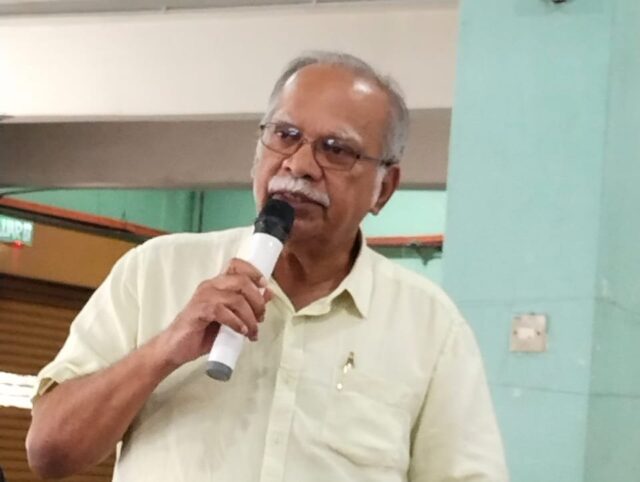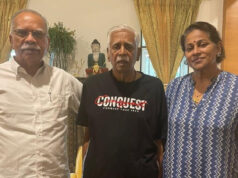 COMMENT BY PROF DR P.RAMASAMY,
COMMENT BY PROF DR P.RAMASAMY,
INTERIM COUNCIL CHAIRMAN, URIMAI PARTY
Disunity in the larger political system not in vernacular schools
Too much has been made of the vernacular schools in the country, Chinese and Tamil schools, contributing to racism and lack of inter-racial integration.
Teo Kok Seong, former Professor of ethnic studies UKM and currently member of the Council of Professors, is no stranger to controversies in the country.
Recently, in an interview with Merdeka Times, he said that the Chinese vernacular schools in the country are breeding grounds of intolerance leading to non-integration.
He seems to have arrived at his conclusion on the grounds of selective interviews with Malays and Indians and as member of Peranakan Community in Kelantan.
DAP MP Teresa Kok rather than factually refuting the veracity of Teo’s argument, called on the police to take action against Teo for peddling his unfounded criticisms of the Chinese vernacular schools.
Kok being senior member of the DAP should have logically and rationally refuted the argument of Teo. Unfortunately, she didn’t, but preferred the police to take action. Speaks well of the intellectualism of the DAP!
In fact, it was the lack of educational planning that forbade constructive thinking on the future of the educational system in the country.
In a matter of time, vernacular schools, national schools and religious schools came to reflect the ethnic and religious character of the country.
It is wrong to blame the Chinese or Tamil schools for creating the ethnic and cultural division in the country.
The overtly racist nature of the subsequent development of the national schools also contributed to the preservation of the vernacular schools system in the country.
In subsequent years, the vernacular schools became reactive to the threats posed by the Malay ultra-nationalists.
Teo’s argument on the racist nature of the vernacular schools is not too different from the biased views of the former prime minister Tun Dr Mahathir Mohammed.
Teo apart from airing his less than objective views of the vernacular schools system cannot be expected to assist on policy measures to be adopted in the future.
On the contrary, he amplified the ethnic cultural, social and political divisions for his political benefit of staying in power.
Today, Mahathir bemoans about vernacular schools standing in the way of national integration and others.
His views on the vernacular schools system is akin to closing the gates of the stables after the horses have bolted.
Vernacular schools, national schools and others are reflective of the ethnic nature of the political system.
The discrimination of the non-Malays has merely fuelled the interest in preserving the vernacular schools system.
In fact, it can be stated that the preservation of the vernacular schools is a consequence of the divided society we live in. It is not the other way around.
The existence of the vernacular schools system as been affirmed as having a constitutional basis by the recent court decision.
I am not saying that the educational system should continue as it is. In fact, there is a big room for reforms only if there intentions for genuine reforms.
However, even if the there is need for reforms, I doubt the PH-led government will touch on the overly sensitive and explosive nature of the vernacular schools system. For the matter, even the largely bureaucratic national schools system is badly in need of major reforms.
To reiterate my argument, racism, lack of national integration and others are not the doings of the vernacular schools system.
These schools are mere reflective of the functioning of the larger political stem, social and cultural system.
It is disingenuous for Teo or others to focus merely on the Chinese vernacular schools without examining the larger social and political context that seems to be the source of racism and disintegration in the country.
Vernacular schools especially Chinese schools are not same as before. More and more Malay and Indian parents are sending their children to be educated in these schools. I understand, Malay students enrollment in Chinese schools is around 20 percent. Anyway, why should Malay parents send their children to Chinese schools if they merely spewing racism and intolerance.










